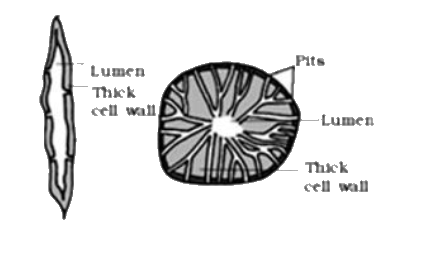Uptake of nitrogen by plants occurs in all of the given forms, except
NO3−
NO2−
NH4+
N2O
To solve the question regarding the uptake of nitrogen by plants, we need to analyze the different forms of nitrogen provided in the options and determine which one is not taken up by plants.
1. Identify the Forms of Nitrogen: The options given are:
- NO3⁻ (nitrate)
- NO2⁻ (nitrite)
- NH4⁺ (ammonium)
- N2O (dinitrogen oxide)
2. Understand Nitrogen Uptake by Plants: Plants primarily absorb nitrogen in ionic forms. The common forms of nitrogen that plants can take up include:
- Nitrate (NO3⁻)
- Nitrite (NO2⁻)
- Ammonium (NH4⁺)
3. Evaluate Each Option:
- NO3⁻: This is a common form of nitrogen that plants absorb from the soil.
- NO2⁻: Although less common, plants can also take up nitrite.
- NH4⁺: Ammonium is another form of nitrogen that is readily absorbed by plants.
- N2O: Dinitrogen oxide is not an ionic form of nitrogen and is not absorbed by plants.
4. Conclusion: Since plants do not uptake nitrogen in the form of N2O, we conclude that the correct answer to the question is N2O.
Final Answer:
The uptake of nitrogen by plants occurs in all of the given forms, except N2O.
---
- NO3⁻ (nitrate)
- NO2⁻ (nitrite)
- NH4⁺ (ammonium)
- N2O (dinitrogen oxide)
- Nitrate (NO3⁻)
- Nitrite (NO2⁻)
- Ammonium (NH4⁺)
- NO3⁻: This is a common form of nitrogen that plants absorb from the soil.
- NO2⁻: Although less common, plants can also take up nitrite.
- NH4⁺: Ammonium is another form of nitrogen that is readily absorbed by plants.
- N2O: Dinitrogen oxide is not an ionic form of nitrogen and is not absorbed by plants.
The uptake of nitrogen by plants occurs in all of the given forms, except N2O.
Topper's Solved these Questions
Similar Questions
Knowledge Check
Nitrogen is absorbed by plants in form of
ANO−3BNH3CNO−2Dboth a and cSexual reproduction in fungi occurs by all of the following except
AoosporesBascopporesCzoosporesDbasidiospores.
All given are dry furits, except
View SolutionMale and female flowers are present on same plant in all of these , except:
View SolutionThe gobar gas is a mixture of all of the given gases,except
View SolutionPredation performs all, except
View SolutionIn earlier systems of classification basis of classification of plants were all of the following except:
View SolutionAll of the following are true except
View Solution

